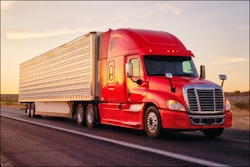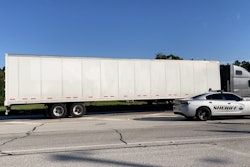The U.S. Senate has voted to re-authorized the Diesel Emissions Reduction Act (DERA), a federal grants and rebate program that helps finance voluntary replacement or retrofit of heavy-duty diesel trucks and engines, renewing the program through fiscal year 2029 at $100 million annually. The bill will now be considered by the House of Representatives.
The DERA program generally targets older diesel engines that lack modern emission control systems to be upgraded with new technologies, such as vehicle and/or engine replacements with new diesel, alternative fuel, and zero emission engines or idle reduction technologies.
Over the last nearly two decades, DERA is responsible for saving more than 520 million gallons of fuel and slashing vehicle emission levels. Currently, 60 modern clean diesel trucks emit what just one truck did in 1988, and a newly manufactured truck produces half the CO2 emissions of one manufactured in 2010.
“Through the trucking industry’s sustained commitment to environmental responsibility and the government’s constructive partnership, heavy-duty truck tailpipe emissions of nitrogen oxide and particulate matter have sharply declined by 99% over the past several decades," said American Trucking Associations President & CEO Chris Spear. "The DERA program has been pivotal to this success, incentivizing motor carriers to embrace innovation and adopt the newest, cleanest equipment available."
 EPA
EPA
According to the Engine Technology Forum, formerly the Diesel Technology Forum, near-zero emissions diesel trucks comprise 57% of all commercial diesel trucks (Class 3-8) on the roads today. These trucks are equipped with diesel particulate filters (DPF) and selective catalytic reduction systems (SCR) that achieve near-zero levels of emissions. Additionally, 65.7% of all Class 3-8 diesel trucks on the road are 2007 and newer and are equipped with DPFs, so they achieve near-zero emissions for particulates.
DTF’s analysis of S&P Global Mobility TIPNet Vehicles in Operation Data as of December 2022 found that in the population of Class 8 trucks in operation that are 2010 or later model years, 95.4% are advanced diesel technology, 2.1% are CNG, 0.3% are electric, and the remainder are gasoline or other fuels.
DERA has funded projects in diverse sectors and project locations but in its 2022 report to Congress, the Environmental Protection Agency noted that the largest number of upgrades (43%) went to school buses from 2008 to 2018. Freight sector projects, at 36%, are comprised of various vehicles, including over 17,000 long-haul combination truck upgrades. Construction, port, municipal, other (industrial, mining, rail yard, and stationary), agriculture, airport, and transit account for the remaining 21% of funded sector upgrades.
Since the inception of DERA, EPA said funding request amounts have exceeded funding availability. In fiscal years 2017 and 2018, grant and rebate applications requested $170 million more in funds than available from DERA appropriations.













